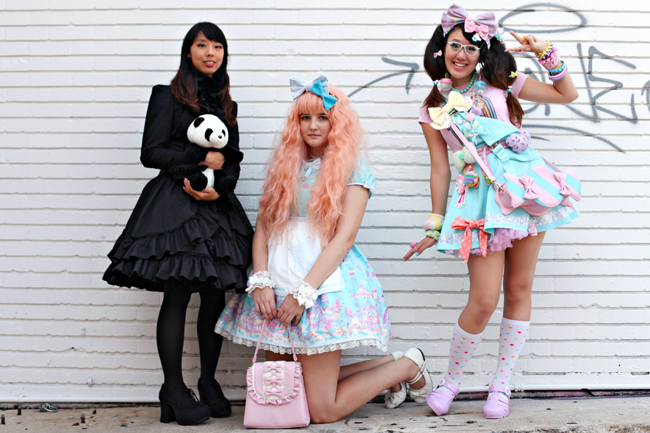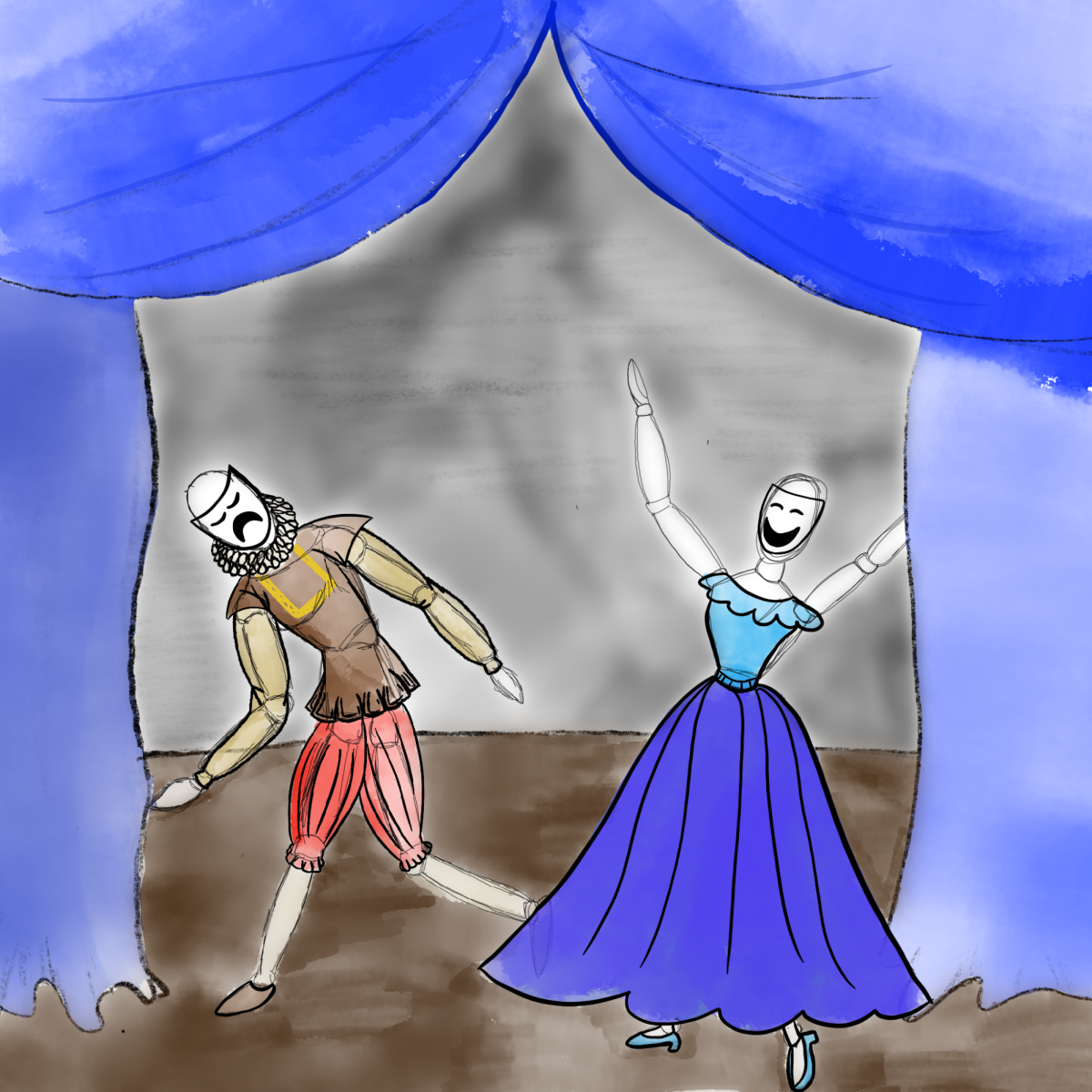Sitting down and drinking tea, social work senior Michelle Merritt wears a frilly pink blouse and fluffy skirt while her handmade flower crown sits on top of her pale-colored wig. In the span of 15 minutes, a number of people stop to tell her how beautiful she looks and that they love her style.
“For me, it’s not a problem to wear this on campus,” Merritt said. “I’m not afraid of doing this anymore, but I’ve been doing it for years. I’m just used to people staring at me.”
Merritt is the creator and president of the newly instated Japanese Street Fashion Club, created as an outlet for students interested in Japanese street fashion subcultures.
“Honestly, people tend to like it more than they tend to mock, but it does happen because walking from our club meeting last week, we did get yelled at,” Merritt said. “I think it’s cool to bring this freedom that I have and create a group so more people are comfortable doing it.”
These fashion subcultures include Lolita, mori girl, fairy-kei, decora and gothic. Essentially, everything from lacy pastel blouses and bows to chains and black clothing are incorporated into
the cultures.
“The one I am most familiar with is Lolita,” Merritt said. “It is basically big puffy petticoats that take inspiration from Victorian eras. Sometimes, people who do it look like a giant cupcake or Marie Antoinette, but it’s very opulent and fun.”
The club plans to host social events in order to show these are style choices— not Halloween costumes or fetishes. According to Merritt, events will include things like jewelry classes, tea parties and fashion shows for the public.
“I feel naked when I’m not [dressed up] — like I’m not the real me,” psychology freshman Amber Nong said. “People who disapprove are pretty close-minded, and sometimes it’s fun to do something different, even if it surprises people.”
One of the main goals of the Japanese Street Fashion Club is to facilitate the interest of members and spread awareness when it comes to Japanese street fashion. Undeclared freshman Rebecca Maset believes the uniqueness of Japanese street fashion is what makes it hard to accept.
“I have not worn it for the past few weeks because I’ve wanted to acclimate myself and make new friends before they realize how strange I am,” Maset said. “But it’s really encouraging to see a large group of people who are actually dressed up themselves.”
Although walking around dressed in Japanese fashion attracts a lot of stares from people, Elaine Weiss, an international relations and global studies sophomore and the club’s historian, does not let that get to her.
“People aren’t necessarily welcoming to things they don’t understand,” Weiss said. “I feel like that’s their problem, and other people shouldn’t stop you from doing what makes you happy.”















